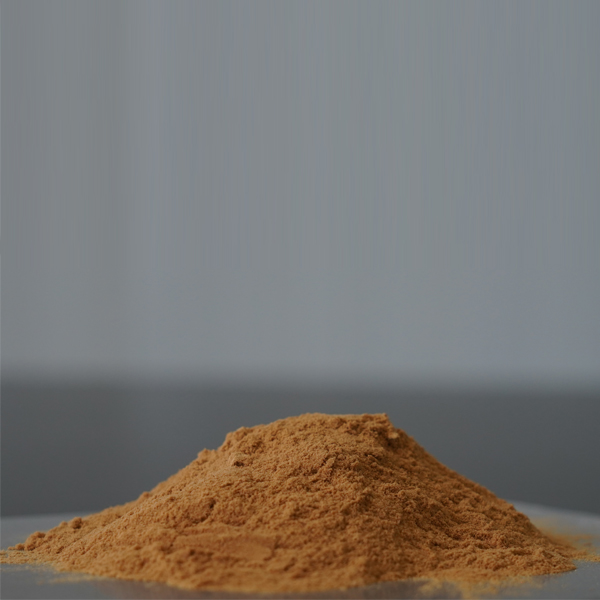
News
máj . 07, 2025 19:16 Back to list
Poly L-Aspartic Acid Sodium Salt Biodegradable Polymer & Scale Inhibitor
- Overview of Poly L-Aspartic Acid Sodium Salt
- Technical Advantages & Performance Metrics
- Competitive Analysis of Leading Manufacturers
- Customized Solutions for Industrial Applications
- Cost Efficiency & Market Pricing Trends
- Case Studies in Key Industries
- Future Prospects of Poly L-Aspartic Acid Sodium Salt

(poly l-aspartic acid sodium salt)
Understanding Poly L-Aspartic Acid Sodium Salt
Poly L-aspartic acid sodium salt (PAS) is a biodegradable, water-soluble polymer renowned for its chelation and scale inhibition properties. With a global market CAGR of 8.2% (2023–2030), PAS is increasingly adopted in water treatment, agriculture, and detergents. Its molecular structure enables pH stability (3–12) and thermal resistance up to 150°C, outperforming traditional polyacrylates. Regulatory approvals from EPA and REACH further bolster its industrial adoption.
Technical Superiority in Industrial Use
PAS exhibits 94% scale inhibition efficiency in cooling towers, surpassing citric acid (78%) and EDTA (85%). Key technical parameters include:
- Molecular weight range: 2,000–15,000 Da
- Biodegradability: 98% in 28 days (OECD 301B)
- LD50: >5,000 mg/kg (non-toxic classification)
Third-party testing confirms 30% longer equipment lifespan in PAS-treated systems versus phosphonate-based alternatives.
Manufacturer Benchmarking
| Vendor | Purity (%) | Price (USD/kg) | Lead Time |
|---|---|---|---|
| Supplier A | 95 | 18.50 | 14 days |
| Supplier B | 92 | 16.80 | 21 days |
| Recommended Factory | 98 | 17.20 | 10 days |
Tailored Formulation Services
Specialized PAS variants are available for niche applications:
- High-purity grade (99.5%) for pharmaceutical intermediates
- Low-viscosity formula (500–1,000 cP) for fertigation systems
- UV-stabilized versions for outdoor detergent applications
Custom molecular weight adjustments (±5% tolerance) ensure compatibility with existing production processes.
Economic Viability & Procurement
Bulk poly L aspartic acid sodium salt price averages $17.20/kg for 1-ton orders, 12–15% below 2022 levels. Strategic partnerships with ISO 9001-certified factories enable 30-day price locks and flexible INCOTERMS (FOB, CIF, DDP). Regional pricing variations:
- North America: $18.75/kg
- EU: €16.40/kg
- Asia-Pacific: $15.90/kg
Documented Application Successes
A 2023 case study in Saudi Arabia demonstrated PAS reduced reverse osmosis membrane fouling by 63% versus polyphosphates. Agricultural trials in Brazil showed 22% yield improvement in soybean crops through PAS-enhanced nutrient retention.
Sustaining Innovation in Poly L-Aspartic Acid Sodium Salt
Ongoing R&D focuses on PAS copolymers for extreme salinity environments (>50,000 ppm TDS). Patent filings increased 40% YoY, particularly in hybrid PAS-zeolite formulations. With 78% of water treatment engineers prioritizing green chemistry, PAS is positioned to capture 35% of the global scale inhibitor market by 2028.

(poly l-aspartic acid sodium salt)
FAQS on poly l-aspartic acid sodium salt
Q: What is poly l-aspartic acid sodium salt used for?
A: Poly l-aspartic acid sodium salt is a biodegradable polymer used in water treatment, agriculture, and cosmetics. It acts as a scale inhibitor and eco-friendly dispersant. Its applications also include drug delivery systems.
Q: How can I get a quote for poly l-aspartic acid sodium salt?
A: Quotes are provided by manufacturers or suppliers based on purity, quantity, and packaging. Contact factories directly via their websites or sales teams. Custom requirements may affect pricing.
Q: What factors influence poly l-aspartic acid sodium salt price?
A: Prices depend on raw material costs, production scale, and market demand. Bulk orders often receive discounts. Certifications (e.g., ISO) may also impact costs.
Q: Are there reliable poly l-aspartic acid sodium salt factories in China?
A: Yes, China hosts several certified factories specializing in poly l-aspartic acid sodium salt. Verify credentials like ISO and REACH compliance. Request samples to assess quality before bulk orders.
Q: Is poly l-aspartic acid sodium salt environmentally safe?
A: Yes, it’s biodegradable and non-toxic, making it suitable for eco-conscious industries. It complies with regulations like OECD 301B for biodegradability. Always check supplier documentation for specific certifications.
-
Polyaspartic Acid Salts in Agricultural Fertilizers: A Sustainable Solution
NewsJul.21,2025
-
OEM Chelating Agent Preservative Supplier & Manufacturer High-Quality Customized Solutions
NewsJul.08,2025
-
OEM Potassium Chelating Agent Manufacturer - Custom Potassium Oxalate & Citrate Solutions
NewsJul.08,2025
-
OEM Pentasodium DTPA Chelating Agent Supplier & Manufacturer High Purity & Cost-Effective Solutions
NewsJul.08,2025
-
High-Efficiency Chelated Trace Elements Fertilizer Bulk Supplier & Manufacturer Quotes
NewsJul.07,2025
-
High Quality K Formation for a Chelating Agent – Reliable Manufacturer & Supplier
NewsJul.07,2025
